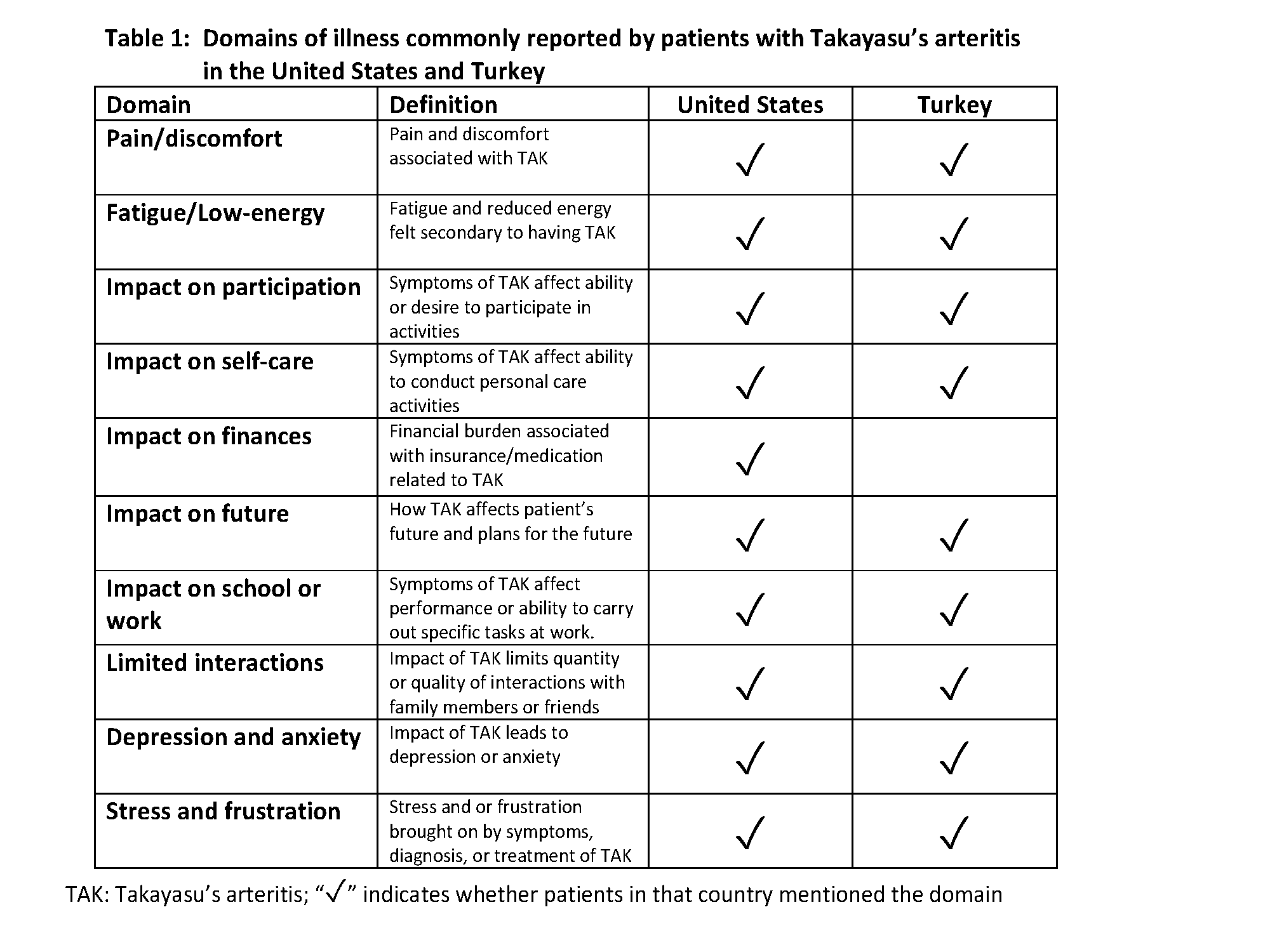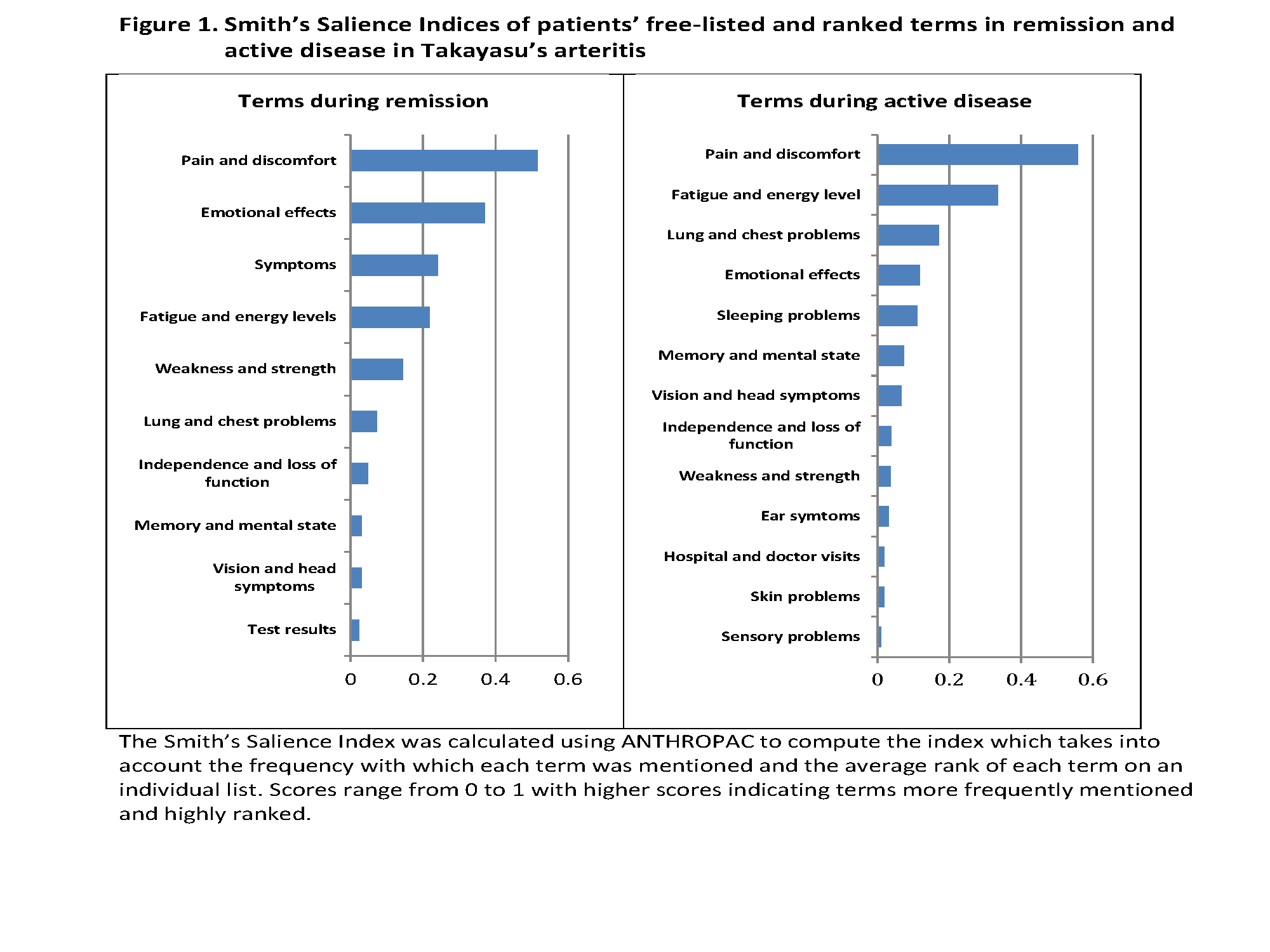Session Information
Date: Sunday, November 13, 2016
Title: Vasculitis - Poster I: Large Vessel Vasculitis and Polymyalgia Rheumatica
Session Type: ACR Poster Session A
Session Time: 9:00AM-11:00AM
Background/Purpose: The need to include patients’ perspectives as key outcomes in clinical research is now widely recognized. This project was designed to describe the experience and burden of disease in patients with Takayasu’s arteritis (TAK) during remission and active disease, and determine its effect on their daily lives.
Methods: Patients with TAK from the United States and Turkey were recruited to participate in semi-structured, one-on-one interviews or focus groups. The interviews and group sessions were recorded, transcribed, and entered into an Nvivo database. Patient-reported outcome themes were identified. Patients in the USA were invited to free-list terms that they associated with disease states. The Smith’s Salience Index (SSI) was used to identify the most salient terms. SSI Scores range from 0 to 1 with higher scores indicating terms frequently mentioned and highly ranked by patients.
Results: 31 patients with TAK were involved in the qualitative research. 12 patients participated in individual interviews in the US and a total of 19 patients participated in three focus groups in Turkey. The most common themes that emerged were pain and discomfort, fatigue and low energy levels, and emotional impact. 75% of the study patients reported additional disease-specific domains of illness, most of which were similar between the two countries and only differed with regards to impact on finances (Table 1). The most salient terms identified by free-listing and ranking were pain/discomfort and emotional effects (SSI=0.51 and 0.37, respectively) during remission and pain/discomfort and fatigue/energy levels (SSI=0.56 and 0.33, respectively) during active disease (Figure 1).
Conclusion: Patients with TAK report a range of disease-specific symptoms across different cultures and disease states that are generally not well or specifically captured by generic patient-reported outcome tools currently used in research and not at all addressed by physician-reported outcome measures. Patients identify different outcomes that are important during periods of active disease. Developing methods to capture outcomes of high importance to patients would advance research methodology to best capture the full spectrum of disease activity in TAK.
To cite this abstract in AMA style:
Sreih AG, Alibaz-Oner F, Easley E, Davis T, Mumcu G, Milman N, Robson JC, Cronholm PF, Direskeneli H, Merkel PA. Health-Related Domains of Importance to Patients with Takayasu’s Arteritis [abstract]. Arthritis Rheumatol. 2016; 68 (suppl 10). https://acrabstracts.org/abstract/health-related-domains-of-importance-to-patients-with-takayasus-arteritis/. Accessed .« Back to 2016 ACR/ARHP Annual Meeting
ACR Meeting Abstracts - https://acrabstracts.org/abstract/health-related-domains-of-importance-to-patients-with-takayasus-arteritis/


